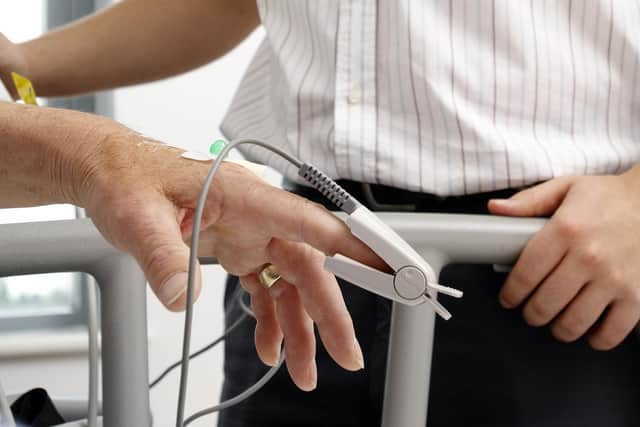Stroke survivor Andrea on a mission to save lives as part of Stroke Prevention Day


Andrea Outram, 70, was a nurse when she suffered a stroke in 2007, but neither she or her colleagues were aware at the time that an irregular heartbeat – atrial fibrillation (AF) – was a major cause of strokes.
Since she battled her way back to health through her own determination and a treatment called thrombolysis, Andrea – who was left unable to speak for many months – has plenty to say on Stroke Prevention Day, which is today.
Advertisement
Hide AdAdvertisement
Hide AdAndrea, who fought back to work in the NHS for another 13 years, took it upon herself to make others aware of the signs of AF and to get themselves checked out – even sending patients with asthma or breathing difficulties to have their heart rates checked.


She said: “I honestly thought my life was finished. In fact, I think without the thrombolysis I wouldn’t be here today. I had never even thought about AF as a risk factor. Now I make sure everyone knows about it.
“Spreading the word is so important to me. I attend universities to talk to medical students and talk about the things I was never taught as a student.
“My mission has always been to make more people aware.”
I’m a walking notice board for AF. With my patients in the past, I’ve taken one look at them and knew straight away they have AF and I know this has saved lives.”
Advertisement
Hide AdAdvertisement
Hide AdThe Stroke Association says almost three out of four people don’t know that an irregular heartbeat is a major cause of strokes – and that around half a million people are living with undiagnosed atrial fibrillation, where the heart beats with an irregular rhythm, causing blood clots which can travel to the brain and cause a stroke.
Juliet Bouverie, chief executive of the Stroke Association, said: “I’s worrying that so few people know that a little thing like how your heart beats can lead to a massive stroke.
“AF often has no symptoms and a stroke can strike without warning. Don’t let the first sign of your AF be a sudden and life-changing stroke.
"It’s vital check regularly. It’s really easy to check on your own.
Advertisement
Hide AdAdvertisement
Hide Ad"Feel for your pulse on your wrist or neck to make sure it has a regular beat. If you suspect you have an irregular pulse, contact your GP.”
Trudie Lobban, founder of the AF Association, said: “We welcome Stroke Prevention Day to help detect more people living with yet to be diagnosed AF.
"Raising awareness of the importance of pulse checks is key to detecting the irregular heart rhythm and leads to more people being diagnosed and receiving appropriate therapy to reduce their risk of an AF-related stroke.”
The charity has a video guide on its website – at www.stroke.org.uk/spd23 – showing people how they can check their own pulse on their wrist or neck.